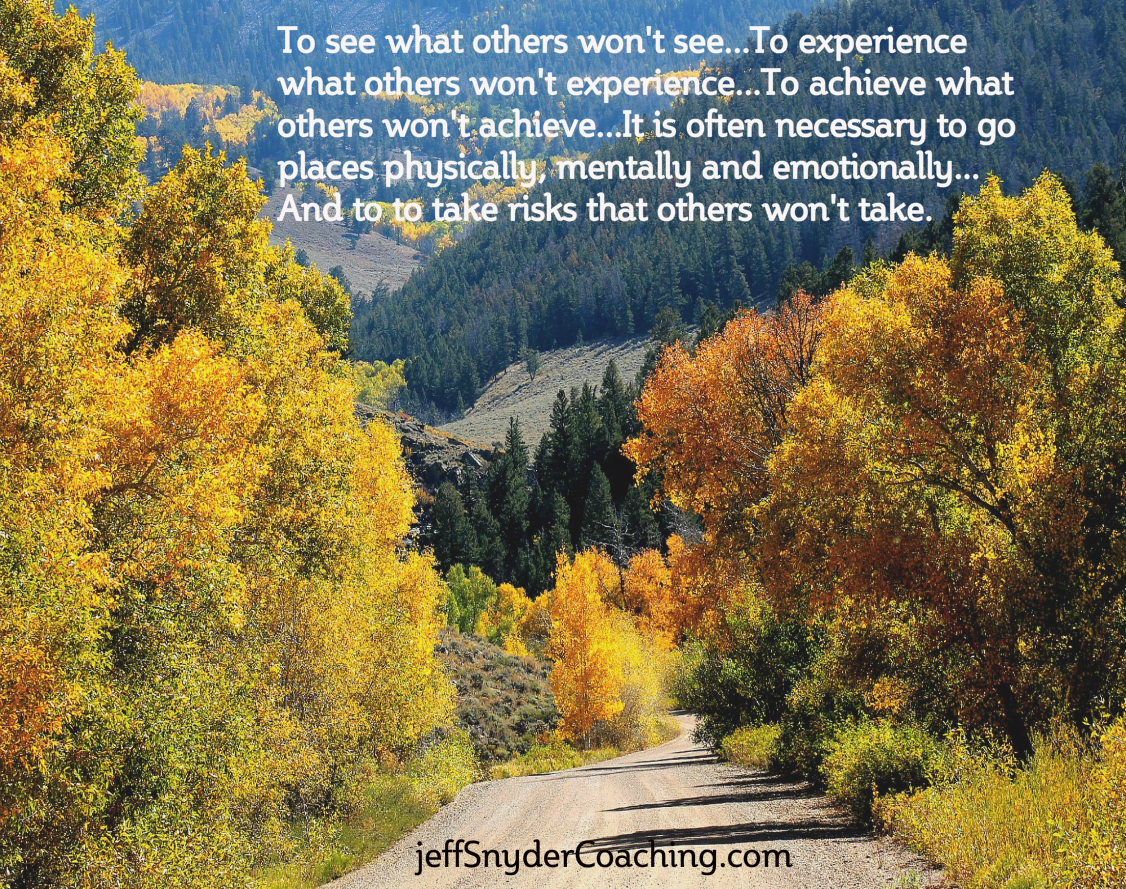How Old Is Too Old To Look For A Job?
At one of my recent speaking engagements, a woman came up to me and asked a question about searching or a job. Her question grabbed my attention and continues to stick with me.
How old is too old to look for a job?
This question came to me from a woman whom I would guess to be in her 50s. I politely asked her what she thought the appropriate answer to the question was. She didn’t have an answer.
I told her the correct answer was whatever she thought the correct answer was. I wasn’t trying to be funny. There is no age when someone should stop thinking they can be productive. It’s up to the individual.
If you were to ask some of the guys I skate with who are in their 50s or 60s when someone should stop playing hockey, I suspect they would tell you when it’s time. In these guy’s minds, the time to stop skating would be when they can no longer skate and not a moment sooner.
I’ve shared a testimonial recently from a 60+ year old career coaching client of mine. I share this kind of information to let others know that success can be achieved at any age. This 60+ year old client was having trouble getting interviews when he first approached me. After opening his mind to coaching, his resume changed, his LinkedIn presence changed and his job search results changed for the better.
Don’t let anyone else tell you when you’re too old for something. Decide for yourself!
Resume and LinkedIn Coaching Success for a 60+ Year Old Information Security Professional
Resume Coaching Success for a 60+ Year Old Information Security Professional
Client Profession: Information Security Architect / Engineer
Client’s Problem: Client’s original resume was not generating any interviews in a hot job market for information security talent.
Client’s Original Resume: 8 Pages in length covering 40 years of professional experience
Client’s Original Resume Content: 5 of 8 pages focused on managerial skills. The coaching client disliked managerial tasks.
New Resume after Jeff Snyder Coaching: 3 Pages covering 40 years of professional experience that aligned with my client’s LinkedIn profile message.
New Resume Content after Jeff Snyder Coaching: Hands-on technical information security topics with no mention of managerial skills. The new resume generated interviews.
Coaching Client’s Results: Coaching client found a Cybersecurity job 20 minutes from his home.
“I wanted to let you know that I have found a new - and very good - home here. I think it's fair to say that I am about as happy as the law allows. I also wanted to let you know that I got the job largely as a result of the resume and LinkedIn profile you helped me construct. I have to say that one of the other things that helped me was my attitude.
Thanks again for all your help. I fully expect that this job will last me into retirement. (I'll be 66 in just over two years and if I end up liking it as much as I think, I may well continue working a reduced schedule past then.) From what I can see now, it looks like I'll be living the good life for the foreseeable future."
Jeff Snyder Coaching is found at www.jeffsnydercoaching.com, 719.686.8810
Practical Resume Advice
Unless you own an Applicant Tracking System (ATS), there would be no reason for you to know that while ATS's are intelligent, they’re not brilliant.
Here’s an example:
Bob Jones, CISSP, CISM, MBA
If this is how you introduce yourself at the top of your resume, your presentation will look great to the human eyeball. However, some ATS’s will not know that Jones is your last name. Some ATS’s will store you in the database as:
First Name: Bob
Middle Name: Jones
Last Name: CISSP, CISM, MBA
Solution:
Bob Jones
CISSP, CISM, MBA
This is by no means exciting news but not knowing can cause your resume to be stored improperly in an ATS.
This what I refer to as my tactical, practical advice for resume owners.
Jeff Snyder Coaching is found at www.jeffsnydercoaching.com, 719.686.8810
Self-Regard, An Emotional Intelligence Skill
Self-Regard is one of 15 Emotional Intelligence skills that can be measured with the EQi-2.0 Emotional Intelligence assessment. In order to acquire this assessment, a person has to go through training and certification in order to understand how to interpret and work with the results of the assessment.
Self-Regard has to do with one’s confidence and/or the ability to respect oneself.
Too much Self-Regard can come across to others as arrogance.
Not having enough self-regard is not healthy either as the person who does not have a healthy level of self-regard may come across to others as lacking confidence.
One of the ways to address one’s self-regard is by concentrating on strengths. People who know their strengths and understand how to properly leverage their strengths can develop a well-balanced, healthy level of self-regard.
Jeff Snyder Coaching is found at www.jeffsnydercoaching.com
Thank You!
Two weeks ago was apparently the anniversary of when I first stepped onto a stage as a public speaker. Hundreds of you recognized that anniversary and I thank you.
When that anniversary occurred according to LinkedIn, I was somewhere deep in a canyon of Utah hiking and taking pictures. The trip I recently returned from was a reward trip for me. It was one of the many goals I put on my white board 1.5 years ago just before having open heart surgery.
I love Bryce Canyon National Park and I made it a goal to get back there to repeat a 10 mile hike I'd taken a few years ago with a buddy and a camera.
In order to be ready for this trip and all the physical activity my buddy and I had planned, I had to execute all of the physical recovery goals I set over the past year following open heart surgery.
This week is apparently the anniversary of when I created SecurityRecruiter.com and Jeff Snyder Coaching. I don’t keep track of these things but apparently LinkedIn does.
Thank you to each and every one of you who have acknowledged my anniversaries. I apparently have a history of creating new things after the summer ends!
I hope to get to work with you in the future through Jeff Snyder Coaching, SecurityRecruiter.com or through Public Speaking opportunities you might need a speaker to step in and fulfill.
What is the value of LinkedIn Endorsements?
When LinkedIn created a new way to endorse others a few years ago, many people formed many different opinions regarding the value of these endorsements.
LinkedIn Endorsements
This is what I'm referring to when I talk about LinkedIn Endorsements:
These endorsements came from my own LinkedIn profile.
Check Box Endorsements
Prior to what I call the “Check box Endorsement System”, we were encouraged to write written recommendations. Written recommendations are seldom written any longer. If you want to capture someone’s attention and you want to make someone’s day, consider writing written recommendations for a couple of your LinkedIn connections every week.
Don't Endorse Me!
One of the first people I endorsed through the new check box endorsement feature got a bit upset with me. He made a quick decision to dislike the new endorsement system and he didn’t like it when I endorsed him for many skills which I knew he had.
This reaction to being endorsed was surprising to me. Surprised or not, it was this LinkedIn member’s choice to like or to not like the endorsement system.
Don't Miss This Opportunity
Whether you like or dislike the endorsement system and whether or not you think the system has any value, if you’re not leveraging the opportunity to endorse your peers and/or colleagues from the present or the past, you’re missing a golden opportunity.
There will be a person here and there who doesn’t like to be recognized. You’ll have to be prepared for that. For the most part, there aren’t going to be many of your LinkedIn connections who don’t appreciate being appreciated and recognized.
20 Seconds to ROI I Can't Even Measure
I just endorsed one of my connections and I can tell you that it took 20 seconds for me to exert this effort.
A 20 second investment in order to make someone else’s day is a minuscule investment of time and energy. The ROI from this 20 second investment could be priceless.
Use conversation to solve conflict
Conflict will arise…Time to Speak
The Big Oil Company
Several years ago, I was at a standstill with regards to a contract negotiation with a Fortune 50 company. After speaking with several people from Human Resources, Compliance and Risk Management departments and making no progress, I finally received a call from a very intelligent Harvard educated Corporate Attorney.
My phone rang unexpectedly that day and the Corporate Attorney on the other end opened the call by introducing herself and asking if I had 30 minutes to work with her to solve a problem. She suggested that she knew I had been mistreated by several people in her company and she wanted to fix that situation. How could I say no to an introduction that was designed to disarm my legitimate frustrations with her colleagues?
Of course I wanted to have this conversation!
Thirty minutes later, we negotiated a 34 page contract down to less than 10 pages. The Attorney removed every part of her company’s contract that did not apply to the relationship between my company and her company and we found common ground where we could compromise.
This 30 minute conversation did in fact solve problems because it was a verbal conversation rather than email upon email. And, this conversation produced success because both parties to the conversation wanted to solve the problem and were willing to compromise when possible.
Conflicts occur because of:
- Lack of communication
- Broken communication
- Lack of understanding
- Misinterpretation
- Too much email and not enough talking
- Selfishness by one or both parties to a conflict
- Deception
- Skewed Reality Testing
- And more…
Solution
The next time you find yourself in a conflict, stop sending email. No matter how small the conflict might be, walk down the hall or pick up the phone and have an old fashioned conversation. Be prepared to talk but be even more prepared to actively listen.
Conversation gives both parties to a conflict an opportunity to explain their position and to be heard. Approach this conversation with an open mind and with the objective of solving the problem. Look for opportunities to compromise when you don’t have to win.
What Risks Are You Afraid To Take That Might Be Holding You Back?
What Might Happen If You Stepped Outside Your Comfort Zone?
Resume Coaching Sale!!! / Closed 9.28.15
Your Resume Is Not For You
People are Creatures of Emotion
Coaching Results
The Corporate Security Profession Is Changing...Are You Prepared For This Change?
An unexpected call came to me today from a Chief Security Officer I provided Latin American Corporate Security talent for several years ago. The call covered significant ground and many different topics and obviously prompted me to write this blog.
A large part of our call focused on this Chief Security Officer (CSO) sharing his perspective on where the corporate security profession is headed. This CSO’s career started out in a federal agency nearly 30 years ago. He didn’t stay in the federal arena long. An opportunity surfaced nearly 30 years ago for this CSO to step into private industry. He wasted no time in pouncing on the opportunity and has never looked back.
This CSO’s career has covered what I would call traditional corporate security topics such as:
- Executive Protection
- Supply Chain Security
- Protecting Intellectual Property
- Risk Management
- Investigations
- Security Assessments
- Business Continuity
- Travel Security
- Personnel Security
- Crisis Management
- And More
This CSO does not have an Information Security background. He does work closely with his organization’s Chief Information Security Officer (CISO) but his career did not grow up in technology.
Many times, the CSO told me that he wishes he had picked up more technology experience 10-15 years ago because everything in his business environment is now driven by technology of some kind. He is conversant when he sits at the table with his CISO counterpart but he sees a time in the not-too-distant-future when a position like his will report to the CISO in many companies.
I asked this CSO what advice he would give to a younger corporate security professional or to someone who is leaving a first career in law enforcement or some kind of federal agency. The CSO was quick to respond by telling me he would advise an up-and-coming corporate security professional to learn everything they could possibly learn about Cybersecurity and where it intersects with topics that used to be considered physical security such as the topics mentioned above.
Jeff Snyder Coaching found at JeffSnyderCoaching.com
What Is Measured In An Emotional Intelligence Assessment?
I was recently asked to explain what is actually measured in the EQi-2.0 Emotional Intelligence assessment I use in my coaching practice. The image shown below demonstrates the emotional intelligence skills that are measured by the EQi-2.0 assessment.
This is not an assessment that just anybody can purchase. In order to purchase this assessment, I had to go through certification and training to learn how to interpret the results of this assessment and to understand how to coach my clients around their unique results.
Jeff Snyder's Coaching Blog found at JeffSnyderCoaching.com, 719.686.8810
How to Become a Successful CISO or CSO
CISOs and CSOs need to possess a mix of appropriate education, certifications, experience and technical subject matter expertise. The needs of each individual company will dictate what experience, credentials and technical skills a CISO / CSO candidate needs to bring to the table.
Often Overlooked
A set of skills that companies often overlook when hiring a CISO / CSO candidate include relationship building skills. These are the skills that will empower a CISO or CSO to attract talent and to retain talent. As a strengths coach andan emotional intelligence coach, I’m privileged to see exactly and precisely how my coaching clients are wired from the inside as opposed to only seeing what a security professional chooses to show on their resume; the outside.
How a person is wired on the inside determines how they perform on the outside.
Somewhat Rare
Finding CISO or CSO professionals who possess relationship building strength themes in their top 5 strength themes or even their top 10 strength themes is somewhat rare. These particular strength themes are the themes that equip a person to build relationships, to grow relationships and to know how to work effectively with others.
I’m far more likely to see strategic thinking strength themes in CISO and CSO coaching clients. While strategic thinking strengths are necessary for security professionals, CISOs and CSOs need a greater balance of strengths than just strategic thinking themes.
The Full Package
In order to influence, persuade, negotiate and to collaborate with peers and customers, CISOs and CSOs need to be equipped with a balance of relationship building, influencing, executing and strategic thinking strength themes. These leadership professionals need to understand what they have to work with and they need to know how to leverage what they have and how to manage the strength themes that show up as weaknesses.
The Right Mix
CISOs and CSOs who build the most effective security programs, the best security teams and who generate the best results for the businesses that employ them are those who also have well-balanced emotional intelligence. These people know themselves well and they have an advanced understanding of how they are perceived by and how they come across to others across the business they’re there to serve.
A person’s unique mix of strength themes are like their DNA. We all have unique DNA but we can’t change what we have. Emotional Intelligence skills on the other hand are flexible and can be adjusted and improved upon over time.
What to Do
If you don’t know already, find out what your unique strength themes are so you know for sure what you have to work with and what you have within you to leverage.
If you’re ready to take your career to the next level, learn about your unique emotional intelligence. Your emotional intelligence (EI) or emotional quotient (EQ) as it is sometimes called can be measured and improved through coaching if in fact it needs work.
Jeff Snyder’s Coaching Blog found at JeffSnyderCoaching.com, 719.686.8810
How Many Words Are In Your Resume?
On my screen, as a result of my research team’s work, I am looking at a resume that contains 11,883 words. In case you’re not an expert on how many words fit on a clean, clear, logically written single resume page (I’m not either), the sample resumes in my resume coaching portfolio that have opened interview doors for my past resume coaching clients have an average of 1,250 words total. These 1,250 words cover 2-3 total pages with plenty of white space.
In case you were wondering, 11,883 words equates to 39 Word document pages. This resume I'm referring to was sent to me for one reason and that reason serves as the basis for this blog article. I wish I could tell you that I’ve never seen a 39 page resume before but this is the second time in the past few months that I’ve seen a 30-40 page resume.
When you send out a resume, you have to know who might be sitting in your resume's audience. Chances are very high that the people in your audience are busy, data-overwhelmed professionals who don’t read unless they have to. I don’t mean that they can’t read. What I mean is that they scan before they commit to reading and that resume scanning process might last for 10, 15 or maybe 20 seconds.
A 39 page resume doesn’t even qualify as a resume in my own data-overwhelmed world. A 39 page resume is more like a dissertation to a data-overwhelmed person. I can’t think of anyone I know who is busy and data-overwhelmed who would invest even 5 seconds to tackle a 39 page resume.
Jeff Snyder’s Coaching Blog found at JeffSnyderCoaching.com, 719.686.8810
ASIS Webinar Feedback for Jeff Snyder
After working with a group in Denver last week that was assembled to assist the Colorado Board of Education with future curriculum decisions and speaking to a large group of Colorado Springs ISSA members last week, my phone rang when I returned to my desk on Friday.
On the other end was the Communications Manager from ASIS International. She was in a bind. A webinar speaker she had scheduled for today had to back out last Friday. My name was brought to the Communication Manager's attention as a possible webinar speaker.
Today the webinar event happened and I had a blast. My part of the event involved covering topics that I work with every day as I fill information security jobs, corporate security jobs and cybersecurity jobs.
If you missed the webinar that focused on career development and resume coaching, I'm always available through Jeff Snyder Coaching to assist you. I teach my clients how to get from where they are to where they want to go and they have personal success.
Over-Delivery, Value, Refreshing, Motivating
Jeff Snyder's Coaching Blog found at JeffSnyderCoaching.com, 719.686.8810






















